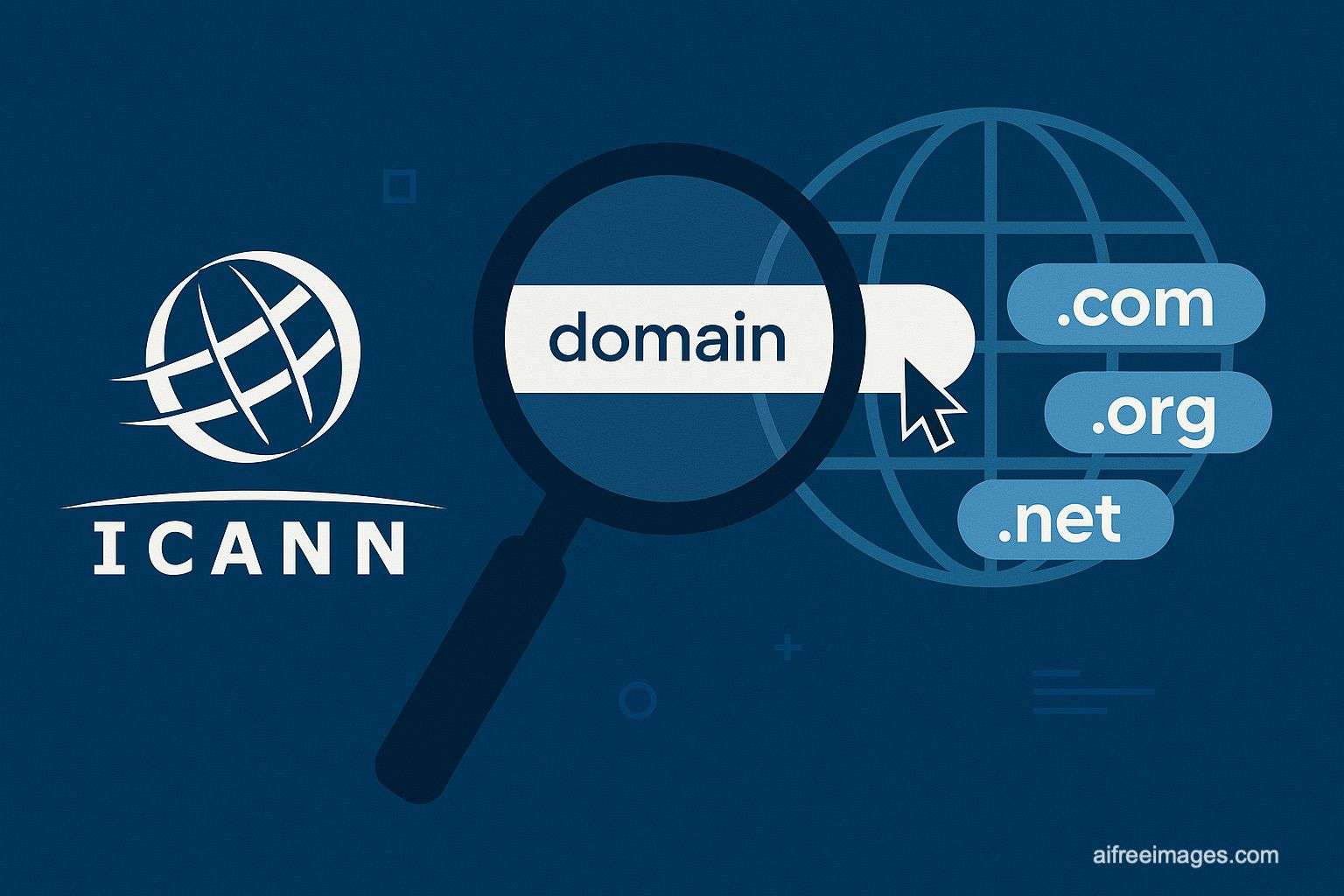Thirty years after Anguilla randomly received the territorial domain .ai, the small Caribbean island now lives a digital “Eldorado” driven by the fever of artificial intelligence. What started in 1995 as a simple ccTLD — similar to .es or .mx — has become a fiscal and branding asset with global traction: Perplexity.ai, x.ai, google.ai, and thousands of smaller projects have adopted these two letters as the official nickname of AI.
The phenomenon is doubly revealing. On one hand, it shows how domain semantics can redefine demand (from “Anguilla Island” to “Artificial Intelligence”). On the other, it exposes the risks and opportunities of a small and open economy depending on volatile income linked to a technological trend.
From 48,000 to 870,000 .ai domains… and counting
The numbers illustrate the leap:
- 2018: ~48,000 .ai domains.
- 2023: ~354,000 (a +145% year-over-year increase).
- Current: ~870,000 domains; at a rate of about 1,500 registrations daily, the million mark could be reached in just over a month.
The network effect is clear: each “unicorn” or launch with .ai reinforces the mental association AI ↔ .ai and pulls along startups, funds, and satellite products. A more active secondary market (buy-sell of premium names) further adds demand pressure.
A modest income in AI, a giant for Anguilla
In Anguilla, .ai has shifted from a marginal asset to one of the country’s fiscal levers:
- 2022: ~$7 million from registrations/renewals.
- 2023: ~$32 million.
- 2024: ~$39 million.
- Projection for 2025: ~$48 million.
According to local authorities, .ai revenue went from < 1% of the total before the boom to 25–27% in 2023, with an estimated ≈ 47% in 2025. For the global AI ecosystem, these are modest figures; for a 96 km² island, they are transformative. Still, the government urges caution: “We can’t base the economy solely on this”.
Not a unique case: when a ccTLD becomes a global brand
Anguilla isn’t the first to play this game. Tuvalu turned .tv into a synonym for video and streaming; .io (Indian Ocean Territory) became a developer-first fetish for its input/output pun; .ly (Libya) sold short names for creativity; .me (Montenegro) struck it rich with personal brands; .gg (Guernsey) claimed the gaming niche; and .co (Colombia) seduced startups with its similarity to .com.
The unwritten rule: if a ccTLD means something powerful for a global industry, it can transcend its geography. But it also increases exposure to cycle changes, regulation, or branding shifts.
Comparative table — ccTLDs turned into “global brands” (by current success level)
Success combines popularity, adoption outside the territory, perceived brand value, and ecosystem dynamism. Figures are cited only when public data exists; otherwise, descriptors are qualitative to avoid inventing numbers.
| Domain | Origin territory | Perceived meaning (outside its geography) | Current success | Adoption drivers | Main risks | Flagship cases/usages |
|---|---|---|---|---|---|---|
| .ai | Anguilla | Artificial Intelligence | Very high | Branding linked to AI; name availability; network effect | AI cycle; local fiscal dependency; potential policy changes | Perplexity.ai, x.ai, noticias.ai, google.ai; AI products and labs |
| .tv | Tuvalu | Video/Streaming/OTT | High | Audio-visual branding; easy to remember; historic commercial agreements | Management agreement dependency; competition from .com/.video | Media, creators, streaming platforms |
| .io | Indian Ocean Territory | Tech / input-output / developer-first | High | Startup culture; SaaS, dev tools, gaming; short names | Geopolitical issues; saturation in niches | Developer tools, indie games, SaaS |
| .me | Montenegro | “Me”, personal identity | Medium-High | Personal brands, contact landings, portfolios | Less B2B traction; cannibalization by .com/.dev | Personal sites, CVs, user-focused services |
| .gg | Guernsey | Good game (gaming) | Medium | Strong adoption in eSports and gamer communities | Competitive niche; less corporate usage | eSports teams, forums, gaming portals |
| .co | Colombia | “Co” ~ company/commerce | Medium-High | Alternative to .com; good availability | Brand confusion; SEO/brand leakage to .com | Startups, eCommerce, early-stage companies |
| .ly | Libya | Short/creative names | Medium | Shorteners; creativity in wordplay | Regulatory/political risks; content policies | Shorteners and “fantasy” naming |
Can the .ai boom burst?
Like any asset tied to a tech wave, yes. Three factors to watch:
- Spending elasticity: during market adjustments, domain portfolios and projects with less “product-market fit” are cut.
- Convention competition: if the market shifts to brand domains, subdomains, or new gTLDs, the shine of .ai could diminish.
- Governance and abuse: spam, phishing, or poorly resolved disputes erode the suffix’s reputation and discourage corporate use.
How to safeguard Anguilla (and any “star” ccTLD)
- Stabilization fund: save part of the surplus from fees into an counter-cyclic cushion.
- Anti-abuse policies and transparent dispute resolution.
- Invest in connectivity and local talent to ensure the windfall translates into real GDP.
- Diversification: promote complementary services (training, digital entrepreneurship, local DNS/edge initiatives) without falling into single-crop registration.
Why .ai won the “AI suffix” battle
- Unambiguous meaning (two letters, one idea).
- Market signal: conveys focus on AI.
- Higher availability than .com for memorable names.
- Mediatic inertia: each major announcement with .ai reinforces the de facto standard.
As long as AI continues to industrialize (from demos to revenue-generating products), the .ai will keep capturing brand value. If the cycle cools down, it will survive where it provides concrete value (established brands, projects with real users), as happened with .tv in video and .io in developer-first tools.
Conclusion
.ai has turned Anguilla into the unexpected beneficiary of the AI decade. It’s a story of semantics, opportunity, and prudence: two letters worth millions for a small island, and an implicit warning about the speed of technological fashion changes. If Anguilla consolidates governance, diversifies, and invests in local capacities, this “luck” could leave roots beyond hype.
via: Domains .AI

